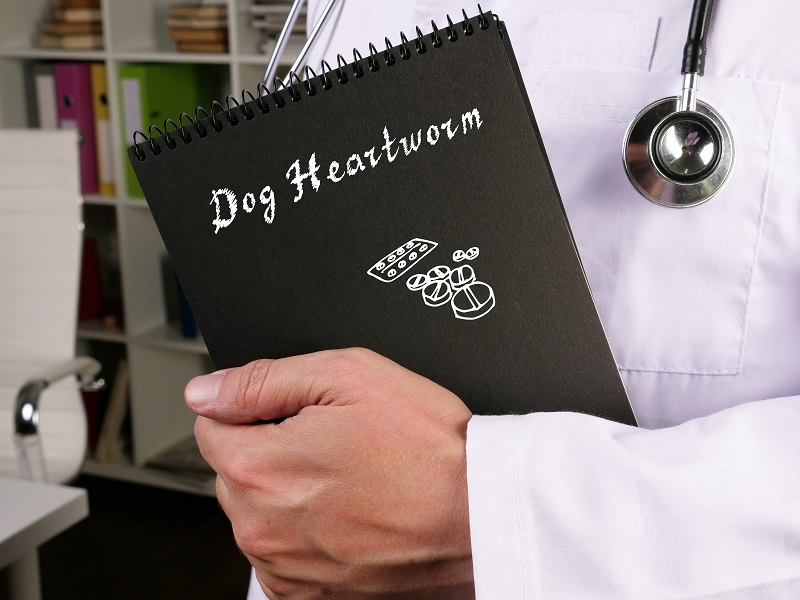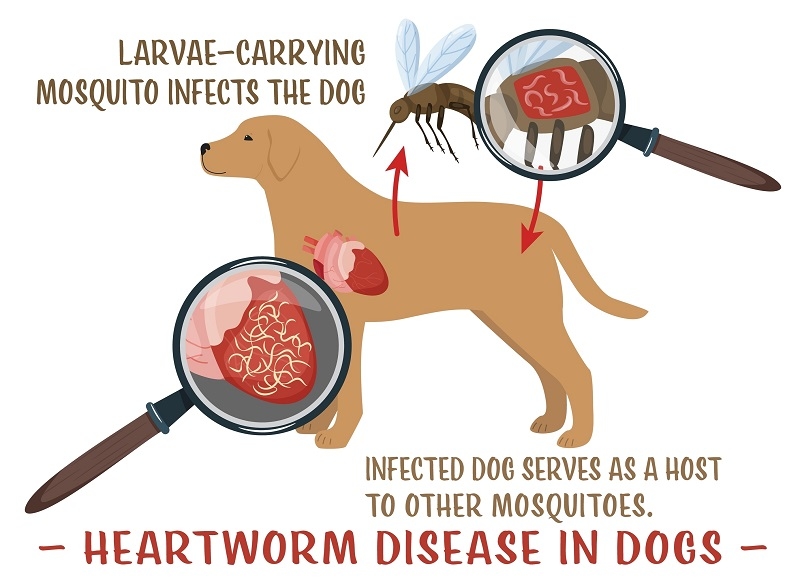
Heartworm illness is among the most severe threats to canine health across the United States. Heartworms are parasitic worms that live in the heart, lungs, and the corresponding blood vessels, which, over time, grow into severe health issues. Although heartworm disease can be prevented, it's an all-too-familiar occurrence for dog owners, especially in areas with a high incidence of mosquitoes. Knowing the canine heartworm symptoms in dogs, including dog coughing heartworm symptoms, and what steps need to be taken for heartworm prevention medication and early detection is crucial to keep your dog healthy.
Heartworms are parasitic worms that infect dogs through mosquito bite. If an infected mosquito bites a dog, it injects the larvae into the dog's circulatory system. The larvae grow into adult worms that live in the heart, lungs, and large blood vessels for many months. Adult heartworms are up to a foot long and cause fatal complications such as heart failure and serious lung disease.
Heartworms can infect dogs regardless of their age, breed, or size. Indoor dogs are not exempted either because mosquitoes enter the home, therefore prevention is necessary for all dogs.
Detection of early heartworm disease can make treatment easier, safer, and less expensive. Early signs of heartworm disease are usually trivial and look like other typical health complaints, so caution should be exercised. Typical early signs of heartworm disease are:
Early recognition of these symptoms allows for prompt veterinarian treatment to prevent serious complications.
As heartworm disease progresses, the more visible symptoms of the canine heartworm appear. Understanding symptoms enables owners to act quickly, sometimes saving the life of a dog. The most common signs of canine heartworm are:
It is due to the fact that some dogs remain symptomless for months or even years that heartworm testing dogs on a consistent basis is required for early diagnosis of infection.
Heartworm testing for dogs every year is a serious part of being a responsible pet owner. Healthy-appearing dogs must be tested annually. Tests for heartworms find the adult female heartworms and microfilariae (young worms) in the blood. Tests are usually performed through the following methods:
Offering routine heartworm testing in dogs prevents infections from occurring too late, when it is not effective and safe to treat.

One of the most apparent signs of illness in a dog with heartworm is coughing. The chronic cough is usually first witnessed during excitement or play, and initially it seems insignificant. The cough more and more becomes a normal occurrence as time passes, an indication of heartworm infection of the lungs and heart. Owners observing a persistent cough in the pet should have the animal examined by a veterinarian early to eliminate heartworm disease and other diseases.
Prevention is always better than treatment for heartworm disease. Heartworm prevention medication is very effective if used regularly and is available in a few forms:
Year-round administration of heartworm preventive medication is the most important factor, since skipping doses may leave a dog susceptible to infection. Prevention is less expensive and less risky than treating established heartworm disease.
Treatment needs to be initiated if heartworms are found. Treatment may be challenging and costly, and hence, early detection is necessary. Heartworm treatment depends on the size of the dog, the degree of infection of the dog, and the locality. Treatment includes:
Heartworm treatment varies from a few hundred dollars for infestations at an early stage of their development to more than one thousand dollars for mature infestations. Routine heartworm testing of dogs and careful observation of canine heartworm symptoms reduce these costs by enabling earlier, less complicated treatment.
Watch your dog for the first signs of heartworm disease. Owners who observe subtle symptoms like mild cough, lethargy, or loss of appetite can get veterinary help before the disease becomes more severe. Early diagnosis equals safer treatment and a healthier long-term prognosis.
Even if your dog appears to be healthy, annual testing of dogs for heartworms and year-round use of heartworm preventive medication are essential. Prevention of heartworm infection is more secure and simpler than treating established infections.
Aside from preventive medications, there are certain lifestyle changes that lower the risk of heartworm infection:
In addition to preventative heartworm medication, these precautions provide the greatest protection for your dog.
Heartworm disease is a preventable yet otherwise lethal disease that can afflict dogs of any age and breed. Knowledge of heartworm signs in dogs, from the early and typically mild ones of coughing and lethargy to the more advanced signs of coughing, panting, and swelling in the belly, is required in order to detect the disease in its early stages and address it as such. Unending coughing must never be taken lightly, for it is a chronic sign of infection.
Yearly heartworm checkup for dogs offers early diagnosis, and routine doses of heartworm preventative medication keep dogs heartworm-free. Treatment is possible if detected with heartworms, but heartworm treatment expenses are high, and therefore prevention is strongly recommended. By staying careful and alert, dog owners can preserve their pets' health, lower veterinarian costs, and provide their pets with a long and joyful life.
This content was created by AI